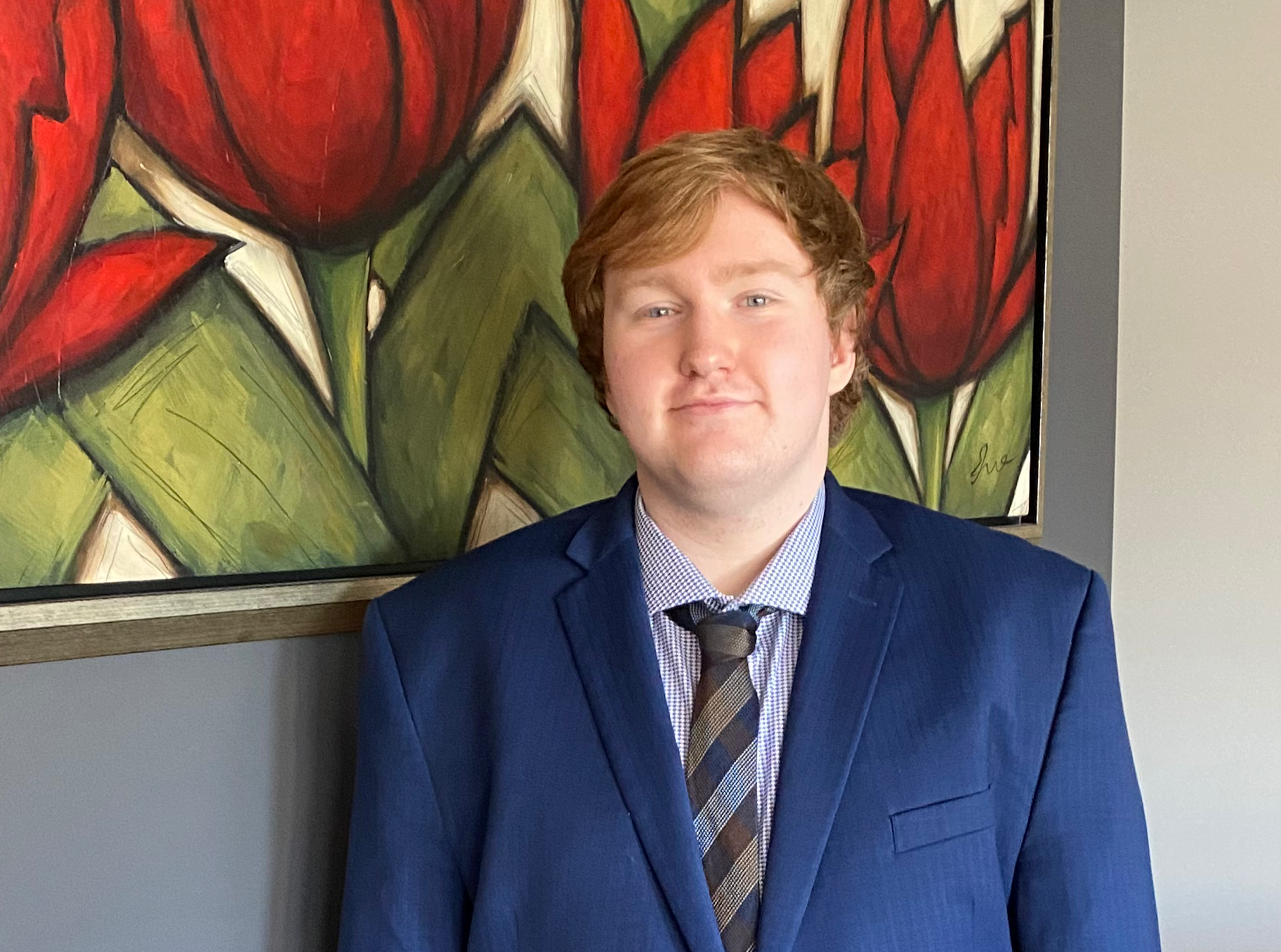
USask student wins first-place prize in Japanese speech contest
Ryan Domoslai took first prize in the beginners’ category in the 30th Alberta District Japanese Speech Contest and placed second in the 32nd Canadian National Japanese Language Speech Contest
By Shannon Boklaschuk
When University of Saskatchewan (USask) student Ryan Domoslai took part in a Japanese speech contest last month, he didn’t expect to win.
“When I first heard about it, it sounded terrifying,” Domoslai said of the contest, which was held online due to the COVID-19 pandemic.
“I was quite embarrassed about my accent in Japanese, so the thought of speaking in front of many people sounded like a nightmare,” he added. “However, I have always loved public speaking. The adrenaline that comes from presenting in front of a live audience is almost addicting, and I love the impact that a powerful presentation can have on people. Therefore, I decided to tackle my fear of speaking in Japanese head-on by participating in the contest.”
Much to his surprise, Domoslai—a computer science major in USask’s College of Arts and Science—took first prize in the beginners’ category in the 30th Alberta District Japanese Speech Contest, hosted by the Prince Takamado Japan Centre for Teaching and Research at the University of Alberta, on March 7, 2021. He admits he was shocked by the win, especially since he only started learning Japanese last summer.
“Prior to the contest, my goal was to tackle my fear of speaking in Japanese and be proud of the hours I spent preparing for the contest. Even after delivering my speech, I was just proud of my work and never even thought it possible for me to win,” said Domoslai.
“After hearing that I had won, I was quite shocked. I guess it goes to show that focusing on the finish line is meaningless; it’s better to just enjoy the process of practicing and if the win happens, it happens.”
Domoslai’s first-place win in the district contest secured him a spot in a national competition. On March 28, 2021, he placed second in the 32nd Canadian National Japanese Language Speech Contest hosted by the Department of Asian Studies at the University of British Columbia. He said he felt more confident going into the national event, which was also held online.
“After participating in the district contest, my embarrassment surrounding my accent was essentially eliminated. When learning a foreign language, I think it is easy to be overly self-conscious about your accent. While accents may differ from person to person, passion and energy can be universally interpreted as long as you speak truthfully,” said Domoslai.
“My speech was about my experience learning about the importance of studying foreign languages as an originally monolingual English Canadian. A few years ago, I participated in a Japanese homestay program. Through my short stay in Japan, I learned about the importance of enriching cultural understanding via exploring new places and learning languages. Since I am still a beginner Japanese learner, it was very challenging conveying my ideas in Japanese, so I did my best to supplement my speech through passion and energy while presenting.”
Prof. Izumi Adachi, a Japanese lecturer in the Department of Languages, Literatures, and Cultural Studies in the College of Arts and Science, said USask students have been participating in the contests annually since 2015. Every year since 2017, a USask student has placed first or second in the district competition.
Adachi said the benefits to students of taking part in the contests include improving their Japanese language skills and meeting Japanese learners from other provinces. Since USask has had numerous contest winners in past years, they have also been able to help new competitors, she said.
“It is very nice to see this cooperation,” said Adachi, who has been teaching in the college since 2014.
Domoslai, who is also studying French in the College of Arts and Science, decided to learn Japanese following his travels to Japan a few years ago. The progress he made in learning French at USask encouraged him to try Japanese, as he realized “that no language is too difficult as long as you are passionate about it.”
“I decided to study Japanese in the college in order to kickstart my Japanese learning journey, which I will continue after graduating. Being in the classroom has allowed me to practice my Japanese with other classmates. The professor has been so helpful with guiding my learning, and I would have never been able to participate in the speech contests if I hadn’t signed up,” Domoslai said, noting USask students have the opportunity to learn a number of different languages at the university.
“I encourage everyone to try a language class as an elective during their time at the university. You might just develop a life-long love of learning languages," he added.


